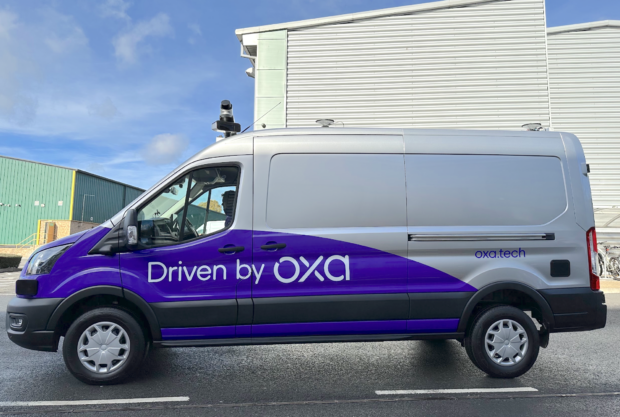When learning how to drive I joked that there was no point in me learning as, by the time I pass my test, cars would drive themselves. While unfortunately I do have to drive myself around, it might not be the case for the next generation.
The self-driving car revolution in the UK is moving closer. The government has made recent changes to the Highway Code regarding the introduction of autonomous vehicles (AV). It seems incredible to me that we could be seeing the UK’s first approved self-driving vehicles on our roads very soon, certainly within the next few years. [Source link: Britain moves closer to a self-driving revolution - GOV.UK (www.gov.uk)]
Oxa, headquartered in Oxford, was the first company in the UK to test a self-driving vehicle on public roads as part of Project Endeavour, an Innovate UK-funded trial. Since 2014, the company has been developing software for AVs, culminating on 27 February 2024 with its first commercial deployment in passenger-carrying shuttles in Jacksonville, Florida, US.

We caught up with Oxa’s Head of Licencing and IP Management Alex Tame to find out how owning intellectual property (IP) has played a role in the research, production, and scaling of their innovative AV technology.
Where did Oxa’s journey begin?
Oxa started life as a spin-out company based on the academic research carried out at the University of Oxford. Founders Paul Newman and Ingmar Posner were lecturers in the robotics department, and that's where Paul started to think about commercialising the work they were doing with robotics, and their journey into developing software for AVs began.
Alex told us about their mission: “Oxa was founded with a very clear vision, to build software that enables any vehicle to be self-driving, anywhere and at any time. We call this Universal Autonomy.”
Oxa has trade marked ‘Universal Autonomy’ along with a portfolio of other trade marks. For a list of Oxa's trade marks, please visit the following link: Oxa trade marks

IP-you've got to know how to use it
Protecting IP is essential for Oxa. Alex told us how they think of anything being created as Oxa’s IP and that they feel it is important to use different types of protection to protect the differing IP assets within the business.
By default, everything is confidential, and, in some cases, we need to consider whether patent protection or trade secrets is necessary. We are careful of what we choose to protect and how, because as you're developing an IP strategy in our industry, a lot of what we're doing is highly confidential and secret, and in most cases, it’s software. This presents a challenge as we wouldn't necessarily want to file patents and we must think carefully about the way we control the IP. For example, we might use NDAs and specific confidentiality clauses in agreements for IP we consider as secrets. They key is to strike the right balance between protecting IP that gets published versus maintaining confidentiality. All this needs to be considered to ensure you have credibility against your competitors, the market and with your investors.
As Alex pointed out, it is important to know what parts of your business to protect and how to protect them. The IPO provides free IP guidance on how to identify your IP assets and the best methods for protecting it. (Link): Seeking intellectual property advice
Oxa’s first patent
The team at Oxa has been steadily growing their patent portfolio since filing their first one in 2021.
We’re filing patents to protect our business and enhance the value of the company through protecting of our IP.
Alex told us that Oxa tends to file patents at the UK IPO first, which helps them decide if they should also file at other global offices.
Our strategy is typically file in the UK to get the priority filing done. The UK provides really good search results quite quickly and early and that gives us good feedback to determine what we do on the global scene.

We asked Alex about Oxa’s use of the IPO’s Green Channel for their patent application.
We filed our first patent using the Green Channel in 2021.
The Green Channel for patent applications was introduced on May 12 2009. This service allows applicants to request accelerated processing of their patent application if the invention has an environmental benefit.
We chose the green channel to get our portfolio started efficiently as patents can be granted faster than via the more traditional route. If we can get a patent through and granted quickly, we may also have a case for a Patent Box claim which will allow us to reduce our Corporation tax liability.” .
Have you created innovation that benefits the environment? Find out more about the IPO’s green channel via this link: Patents: accelerated processing
Top IP Tips
Alex gave us his three top pieces of advice for other businesses and their IP:
-
Know what you've got, and by that, I mean IP audits. Look at your people and what you are creating and know where the IP sits that differentiates you from your competitors. Protecting IP can be expensive so it's essential to understand what you've got and to keep records of it.
-
Know your competitors, there is plenty of publicly available IP data that provides insight into your competitors and your market. Understanding this data and your position in the landscape will help to shape your IP strategy.
-
Value your IP as it helps you to understand the strategic levers driving the value of your IP in the company. Those levers can help investors to understand and have confidence in your business.”
What's next for Oxa and its autonomous vehicle software?
The ultimate prize is universal autonomy; seeing self-driving vehicle capability deployed where-ever there’s a viable commercial case and a public or commercial need. It's a technically complex journey and where you start is important. In the short term Oxa’s focus is on supplying Oxa Driver software into vehicles serving sectors that are ripe for autonomy today. There are two that stand out: Passenger shuttling and industrial logistics and we’re addressing them both. All of this gives our investors greater confidence for future funding rounds.
If we can have a company where everybody's thinking every time you create anything, this is my IP or our company’s IP, that is a real big cultural change which would be, for me, ground-breaking for any company.
Recent Comments